I put this post together because I keep hearing from parents of twins who feel overwhelmed when health signs pop up. Twin life is busy, loud, and full of questions. Small coughs or fevers can feel huge when you are juggling two little ones. This guide gives you a simple, no fluff way to think about the health concerns that show up for twins. Here is why this matters for busy families.
If you are a parent of twins or you expect twins, this post is for you. You care about catching issues early, keeping routines steady, and staying calm when things change. This guide speaks to you in plain words you can act on today. You’ll find ideas you can fit into everyday life without more stress.
1. Prematurity and Low Birth Weight

Twins often come early. That means they need extra care to grow strong. Early babies may have breathing trouble or feeding trouble. They also tend to weigh less at birth. Monitor growth closely in the first months. Regular checkups with your pediatrician catch small issues fast and keep both twins on track.
What you can do:
– Go to every scheduled visit.
– Use a simple growth chart to track weight, length, and head size.
– Speak up about worries or new signs, like fast breathing or feeding distress.
With steady care, most twins catch up and reach healthy development. You can do this together.
Twins tend to arrive earlier and often weigh less, but a little extra care goes a long way! Regular checkups and tracking their growth can ensure both your little ones thrive together.
1. Prematurity and Low Birth Weight
Editor’s Choice

Baby Height Growth Chart, Canvas Height Chart for Kids Baby Child Toddle…
 Amazon$9.99
Amazon$9.99
Baby Scale, Multifunctional Baby Weight Scale, Pet Scale for Puppy, Cat,…
 Amazon$37.78
Amazon$37.78
Medical Appointment and Information Organizer – 24 monthly grids to fill…
 Amazon$9.99
Amazon$9.992. Twin-to-Twin Transfusion Syndrome (TTTS)

TTTS is a worry for parents carrying identical twins. It happens when the twins share blood vessels in the placenta and the flow becomes uneven. One baby may get too much blood and the heart works hard. The other may get too little and grow slowly. Early ultrasound catches TTTS before it harms them. In cases, doctors monitor closely. If needed, a procedure can balance blood flow.
What you can do:
– Schedule ultrasounds during pregnancy.
– Talk with your doctor about TTTS signs and how to spot them.
Being informed helps you act fast and protect both babies.
2. Twin-to-Twin Transfusion Syndrome (TTTS)
Editor’s Choice

Fetal Heartbeat Hard Case Travel Bag Fits Doppler Heartbeat Monitor for …
 Amazon$69.99
Amazon$69.99
3. Feeding Challenges

Feeding twins can feel like a constant juggle. You want both babies fed and calm quickly. Here is why good planning helps. You can feed twins in tandem or rotate, so neither baby waits. Try these steps:
– Pump and freeze milk ahead so you have a quick bottle ready.
– Use a twin feeding pillow to hold both babies steady.
– Call a lactation consultant for a plan that fits your setup.
With patience and practice, feeding becomes easier and a warm bonding time for you and your twins. You’ll gain confidence as you learn the rhythm for day by day.
3. Feeding Challenges
Editor’s Choice

Twin Z Pillow The 6 uses in 1 Twin Pillow ! Grey Plus Free Travel Bag!
 AmazonEUR 132.04
AmazonEUR 132.04
Medela Harmony Manual Breast Pump, Compact Swiss Design with PersonalFit…
 Amazon$28.72
Amazon$28.72
Bottle Warmer, GROWNSY 8-in-1 Fast Baby Milk Warmer with Timer for Breas…
 Amazon$31.99
Amazon$31.994. Sibling Rivalry

As twins grow, rivalry can show up. It feels stressful, but it is normal. You can ease it with clear rules about sharing and turns.
Here’s why these steps help:
– Play simple games that need both kids, like a small puzzle or a cooperative board game.
– Celebrate what makes each twin unique. Let them pick different roles or activities so both feel seen.
– Name the feelings fast. If jealousy appears, say the emotion and offer a fair solution together.
With a calm, supportive home, their bond grows and both kids learn to handle clash healthily.
4. Sibling Rivalry
Editor’s Choice

Castle Panic 2nd Edition | Cooperative Board Game for Adults and Family …
 Amazon$27.90
Amazon$27.90
BONNYCO Wooden Puzzles for Kids Ages 4-6 and 3-5. Set of 6 Jigsaw Puzzle…
 Amazon$17.99
Amazon$17.99
MEROCO Feelings Emotions Cards for Kids Therapy, Realistic Picture Cards…
 Amazon$9.99
Amazon$9.995. Sleep Deprivation for Parents

Twin babies mean more wakeups and more diaper changes. Your eyes burn. Coffee tastes strong. You need rest, yet you care for two kids. Here is a plan you can use.
– Create a shared nighttime routine. Keep it simple: bath, feed, then bed for both.
– Alternate night duties. One parent covers the first stretch; the other the next.
– Nap when the babies nap. A short rest clears foggy thinking.
– Build a support system. Ask family, friends, or neighbors to help with meals or a quick babysit.
Next step: pick one tip and try it this week.
Small rests add up.
5. Sleep Deprivation for Parents
Editor’s Choice

Magicteam White Noise Machine with 20 Non Looping Natural Soothing Sound…
 Amazon$19.99
Amazon$19.99
HelloBaby No WiFi Baby Monitor 5″ Screen 30-Hour Battery Pan-Tilt-Zoom V…
 Amazon$66.99
Amazon$66.996. Increased Risk of Infections

Are you worried your twins will face more infections? In their first year, illness can spread faster because they are born smaller or a bit early. You can lower the risk with small, steady steps.
Here is what you can do:
– Keep vaccines up to date with the full schedule.
– Keep your home clean: wash hands, wipe surfaces, and wash toys.
– Limit contact with sick people and crowded places whenever possible.
– See the pediatrician on schedule and follow growth checks.
– Learn warning signs like fever or poor feeding, and call if unsure.
With these steps, you can help your twins stay healthier as they grow. Consistency matters.
6. Increased Risk of Infections
Editor’s Choice

Germ-X Advanced Hand Sanitizer with Aloe and Vitamin E, Non-Drying Moist…
 Amazon$5.82
Amazon$5.82
Amazon Basics Disinfecting Wipes, Lemon & Fresh Scent, Sanitizes/Cleans/…
 AmazonCheck Price
AmazonCheck Price
Boncare 10 Seconds Oral Thermometer for Adults and Kids – Accurate & Saf…
 Amazon$6.99
Amazon$6.99
7. Allergies and Asthma
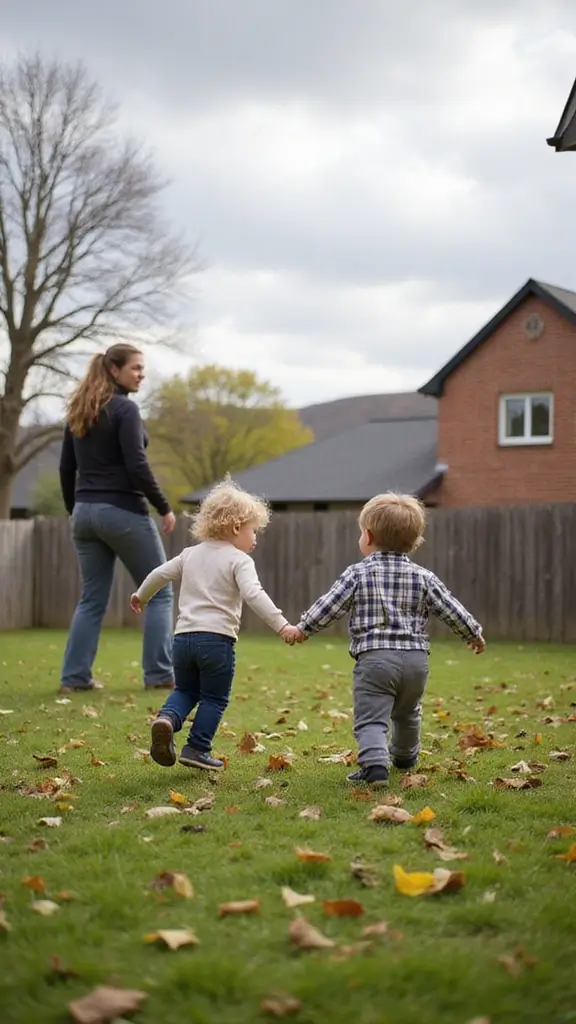
If your twins show allergy or asthma signs, you need a simple plan you can stick with. Look for sneezing, wheezing, coughing, or rashes. Early steps help you protect them.
– Watch for triggers: note seasons, pets, dust, pollen, or smoke that trigger symptoms.
– Keep the home clean: dust often and wash bedding in hot water.
– See a specialist: ask for allergy tests and a clear daily management plan.
– Have a flare-up plan: know when to use inhalers, keep meds handy, and call the doctor if breathing worsens.
– Build a steady routine: sleep, water, and safe activity ease symptoms.
7. Allergies and Asthma
Editor’s Choice

AllerEase Waterproof Mattress Protector, Maximum Allergy Mattress Protec…
 Amazon$41.64
Amazon$41.64
8. Heart Health

Heart Health for Twins
Your twins need a strong heart. Here’s a plan you can start today to protect them.
– Talk with your pediatrician about family heart history and any known congenital conditions.
– Make heart checks part of every well visit; the doctor checks sounds and growth.
– Promote a heart-healthy routine with fruits, vegetables, whole grains, and lean protein.
– Limit sugary drinks and fried foods; encourage active play like bike rides and games.
– Watch for signs such as rapid breathing, pale lips, or easy fatigue.
– Keep notes of questions and growth for the next visit.
Next steps: start small today.
8. Heart Health
Editor’s Choice

The Heart Healthy Cookbook for Two: 125 Perfectly Portioned Low Sodium, …
 Amazon$9.59
Amazon$9.59
BIGGERFIVE Vigor 2 L Kids Fitness Tracker Watch for Boys Girls Ages 5-15…
 Amazon$29.99
Amazon$29.99
9. Gastroesophageal Reflux (GER)

If your twins spit up after meals and seem fussy, you may be dealing with Gastroesophageal reflux, or GER. GER is common in babies and can make feeding hard. With twins, a busy schedule can make it tougher, but small steps can improve comfort at home tonight too.
Here is why this helps.
– Feed them smaller amounts more often.
– Keep them upright for about 30 minutes after each feeding.
– Discuss meds with your pediatrician if needed.
These simple changes can make feeding calmer and give your babies a better chance to grow.
Try these steps today at home.
“Twins might share everything, but their health concerns can be uniquely challenging. Remember, small feeding adjustments can lead to a world of comfort for both you and your little ones battling GER.”
9. Gastroesophageal Reflux (GER)
Editor’s Choice

Baby Feeding Pillow, Anti Overflow Feeding Pillow for Reducing Spit-Up, …
 Amazon$49.99
Amazon$49.99
Ingenuity Baby Base 2-in-1 Booster Feeding and Floor Seat with Self-Stor…
 Amazon$33.97
Amazon$33.97
MYLICON Infants Gas Relief Drops for Infants and Babies, Dye Free Formul…
 Amazon$9.86
Amazon$9.8610. Dentist Visits

Dentist visits for twins
You want your twins to grow up with healthy teeth. Start early. A calm dental visit helps them feel safe and curious.
Here is how to make it work:
– Schedule their first dental check by their first birthday.
– Help them brush twice a day with a small amount of toothpaste.
– Choose a soft brush and kid-friendly toothpaste.
– Make brushing fun with a song, a timer, or a favorite character on the brush.
A friendly start now saves stress later. Create a routine you both enjoy.
10. Dentist Visits
Editor’s Choice
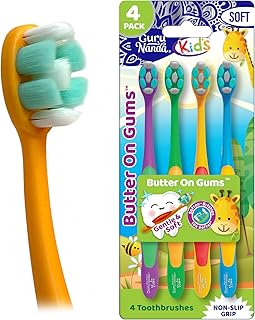
GuruNanda Butter On Gums Kids Toothbrush – 4 Pack Extra Soft Bristles To…
 Amazon$3.99
Amazon$3.99
hello Fresh Watermelon Fluoride Free Kids Toothpaste, 4.2 Oz Tube
 Amazon$4.46
Amazon$4.46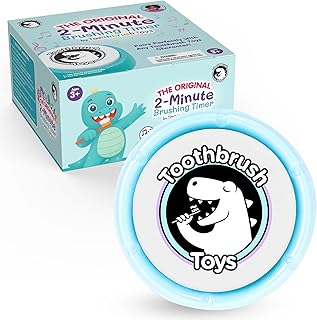
Toothbrush Timer for Kids – Musical 2 Minutes Light Up Timer, Portable a…
 Amazon$9.95
Amazon$9.9511. Vision Screening

Vision screening helps your twins see the world clearly and keep up with daily life. When you check their eyes early, you catch problems before they slow them down. Vision issues can run in families, so keeping eye health in check is wise.
– Start early: Schedule eye exams by age one so issues are found sooner.
– Notice signs: Look for squinting, tilting the head, frequent headaches, eyes rubbing, or trouble following moving objects.
– Know family history: Tell your pediatrician about eye problems in the family to gauge risk.
By staying on top of screenings, your twins see, learn, and grow.
11. Vision Screening
Editor’s Choice

3 Pack kids Blue Light Blocking Glasses for girls boys Computer Blue Lig…
 Amazon$8.99
Amazon$8.99
Nordic Naturals Children’s Eye Health Gummies, Strawberry Lemonade – 30 …
 Amazon$23.76
Amazon$23.76
Snellen Eye Chart, Eye Charts for Eye Exams 20 Feet with Wooden Frame 11…
 Amazon$8.98
Amazon$8.9812. Immunization Schedule

Immunizations keep twins safe from serious diseases. Their bodies are growing, so a solid schedule helps a lot.
Here is what you can do:
– Keep a shared immunization record for both twins.
– Talk with your pediatrician about combo vaccines to cut down visits.
– Bring up any vaccine worries and ask for clear explanations.
Sticking to the plan lowers the risk of illness. You stay ahead by tracking shots, asking questions, and staying on time. Your twins will get protection when they need it, and you’ll sleep a bit easier knowing you’re doing your part. This simple habit adds big safety.
12. Immunization Schedule
Editor’s Choice

Pocket Size Immunization Record Log Book: Keep Track of Your Vaccination…
 Amazon$5.99
Amazon$5.99
Pediatric Vaccines: A Clinical Decision Support Chart
 AmazonCheck Price
AmazonCheck Price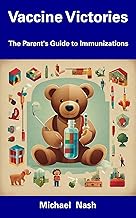
13. Skin Care

You want your twins to feel comfy in their skin. Skin care matters when eczema shows up or skin stays dry.
How to care
– Use gentle, fragrance-free products. Look for hypoallergenic labels. Test a patch.
– Bathe them less often. Short, warm baths only.
– Moisturize right after bathing. Choose a thick cream while skin is damp.
– Watch for rashes or irritation. See a pediatrician if redness or itching lasts.
– Build a simple routine. Morning and night care with soft fabrics.
Next steps: start with one calm product and stay steady.
13. Skin Care
Editor’s Choice

Amazon Basics Ultra Moisturizing Skin Cream for Dry & Sensitive Skin, De…
 Amazon$7.62
Amazon$7.62
Cetaphil Body Wash, Moisturizing Relief Body Wash for Sensitive Skin, Cr…
 Amazon$8.65
Amazon$8.65
16 Pack Baby Washcloths – Luxury Multicolor Coral Fleece – Extra Absorbe…
 Amazon$9.99
Amazon$9.9914. Emotional Support

Emotional Support
If you raise twins, their feelings matter. You help each child grow emotional strength. Start by bonding with each twin, one at a time. This lowers rivalry and builds trust.
Here is how to do it:
– Schedule regular time with each twin.
– Ask a simple question: How are you feeling today?
– Create a warm home where they share hurts and joys safely.
– If you notice mood shifts, slow down and listen longer.
– Let each twin have space to grow at their own pace.
When you do this, you help them feel connected, listened to, and ready to grow. Every day.
Emotional support is key for twins; a few moments spent with each child can foster trust and connection. Remember, their feelings matter as much as yours!
14. Emotional Support
Editor’s Choice
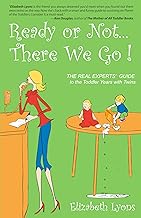
Ready or Not…There We Go!: Real-Life Tips, Tantrum Tactics & Laugh-Out…
 Amazon$7.99
Amazon$7.9915. Skin to Skin Contact

Skin-to-skin contact helps twins bond and stay warm. It supports calm babies and can improve feeding, which is great for preemies. You’ll notice quiet sounds, steady breaths, and little smiles forming when you touch them close.
Here is why you should make it a habit:
– Right after birth, if possible.
– During cuddle time at home.
– When one twin is fussy or upset.
Next steps: place each baby on your bare chest for 10 to 20 minutes. Switch sides so both get time. Simple, warm, and comforting, this practice builds trust and makes both of you feel secure.
Give it time.
15. Skin to Skin Contact
Editor’s Choice

KeaBabies Baby Wrap Carrier – All in 1 Original Baby Carrier Newborn to …
 Amazon$27.96
Amazon$27.96
Yurhap Fleece Baby Blanket Heart Checkered Blanket, Ultra Soft Cozy Baby…
 Amazon$8.99
Amazon$8.99
16. Peer Interaction
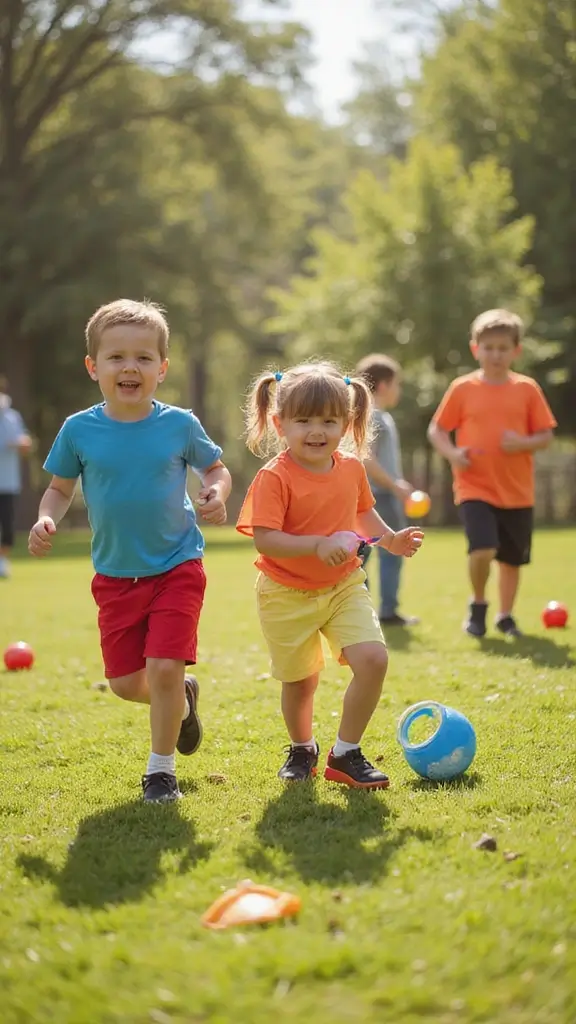
Peer interaction helps your twins grow beyond their home. You want them to build social skills that last. Regular chances to meet other kids teach them to talk, listen, and share beyond their sibling bond. Playdates widen their world and show how to read cues and join a group.
How to make it work:
– Schedule playdates with kids outside your family.
– Sign them up for group classes or clubs.
– Try cooperative games that require sharing and teamwork.
Keep it simple. Let them lead, but guide them toward polite talk and fair play. With practice, your twins will feel more confident and kinder.
16. Peer Interaction
Editor’s Choice

Castle Panic 2nd Edition | Cooperative Board Game for Adults and Family …
 Amazon$27.90
Amazon$27.90
Garbuildman Tetherball Set with Ball & Rope for Outdoor Backyard, Adjust…
 Amazon$39.99
Amazon$39.99
Arts & Crafts Supplies Kits & Materials Set for Kids, Toddler – Carl & Kay
 Amazon$16.97
Amazon$16.9717. Time Apart

Here is why you should plan time apart for twins. They share a strong bond, but separate experiences help them grow as individuals.
– Enroll them in different activities or classes. A music class for one, a sports group for the other can spark new interests.
– Create chances for them to play with different friends. New faces push them to adapt and learn.
– Encourage solo playtime. Short, quiet moments let them test ideas on their own.
Start small, then expand. Time apart builds confidence, not distance, and it shapes who they become beyond twin life.
Your kids will thank you later.
17. Time Apart
Editor’s Choice

Kids Musical Instruments, 33Pcs 18 Types Wooden Percussion Instruments T…
 Amazon$27.89
Amazon$27.89
Franklin Sports MLB Kids Pitching Machine – POP ROCKET Kids Baseball Tra…
 Amazon$35.99
Amazon$35.99
Sensory Activity Board for Kids Toddler Boys , Sensory Fidget Toys for S…
 Amazon$9.99
Amazon$9.9918. Growth Monitoring
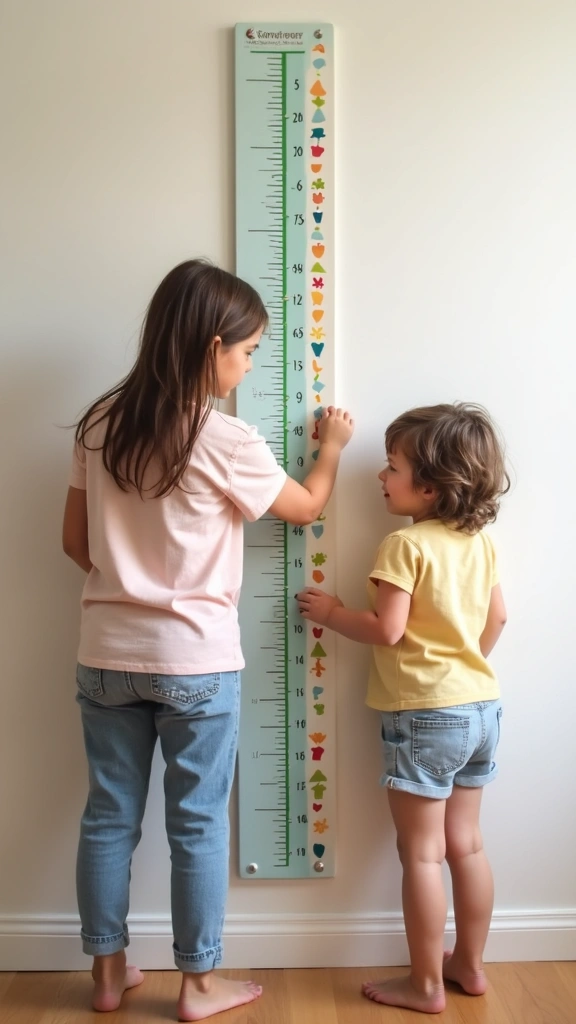
You want to know if your twins are growing well. Regular growth monitoring helps you catch problems early. Differences between twins can show up fast. A small red flag today might mean help later.
– Use a simple growth chart for each child. Write height and weight at each check, and note the date.
– Track milestones and feeding patterns. Record when they smile, sit, crawl, or walk, and how they eat.
– Compare trends, not a single day. Look for steady increases over weeks.
– Bring the chart to every pediatric visit. Talk about big changes.
This routine helps both twins stay healthy as they grow.
18. Growth Monitoring
Editor’s Choice

Mibote Baby Growth Height Chart Handing Ruler Wall Decor for Kids, Canva…
 Amazon$9.98
Amazon$9.98
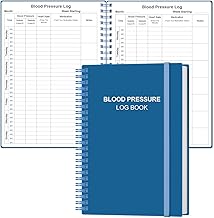
Blood Pressure Log Book – Record & Monitor Your Daily Blood Pressure, He…
 Amazon$8.99
Amazon$8.9919. Importance of Community Support

You want steady help as you raise twins. Community support can lift your day. When you talk with other twin parents, you share tips that fit your life. You gain ideas to handle wakeful nights, feeding, and two kids on the same schedule. You also feel less alone.
Here is why.
Ways to connect:
– Join local or online twin parenting groups.
– Attend family events with other twin families.
– Build small circles of two or three fellow parents.
A supportive network gives listening ears, practical tips, and shared plans. It can turn neighbors into friends and twins into classmates who look out for each other.
Conclusion

Navigating the health concerns of twins can feel overwhelming, but being informed is a powerful tool for any parent. Emphasizing proactive healthcare, nurturing support, and community connection will help ensure your twins grow up healthy and happy. Remember, it’s about taking one step at a time, and you’re not alone on this journey!
Note: We aim to provide accurate product links, but some may occasionally expire or become unavailable. If this happens, please search directly on Amazon for the product or a suitable alternative.
This post contains Amazon affiliate links, meaning I may earn a small commission if you purchase through my links, at no extra cost to you.
Frequently Asked Questions
What Are the Most Common Health Concerns for Parents of Twins?
As a parent of twins, you might encounter several common health concerns. Some of the top issues include prematurity, feeding challenges, and the risk of twin-to-twin transfusion syndrome (TTTS). It’s essential to stay informed and monitor your twins’ health closely to catch any signs early. Regular checkups with your pediatrician can help keep track of their growth and development.
How Can I Support My Twins’ Health During Their First Year?
Supporting your twins’ health in their first year involves proactive measures. Focus on maintaining a consistent feeding schedule, ensuring they receive all necessary immunizations, and being attentive to signs of infections or allergies. Regular pediatric visits can also help catch any potential issues early on, keeping your twins safe and healthy.
What Should I Do If I Notice Developmental Delays in One Twin?
If you notice that one of your twins is experiencing developmental delays, it’s crucial to consult your pediatrician immediately. They can guide you through screening and assessment processes. Early intervention can make a significant difference, so don’t hesitate to seek support and resources that can help your twin catch up to their sibling.
How Can I Manage Sleep Deprivation While Caring for Twins?
Caring for twins can lead to significant sleep deprivation, but there are strategies to manage it. Consider creating a sleep schedule that allows for shared nighttime duties with your partner. Also, try to nap when your twins are asleep, and don’t hesitate to ask for help from friends or family. Remember, taking care of yourself is just as important as caring for your twins!
What Role Does Community Support Play in Twin Parenting?
Community support is vital for twin parenting. Connecting with other parents of twins can provide you with invaluable advice and emotional support. Look for local twin clubs or online forums where you can share experiences, tips, and strategies for managing the unique challenges of raising twins. This connection can help you feel less overwhelmed and more empowered in your parenting journey.
